Welcome to day one of “The True American” book club!
Today we bring you the first of eight serialized installments of the opening chapters of “The True American: Murder and Mercy in Texas.” The first book club discussion is on August 31.
If you’re only just joining us, I just announced that I’m serializing the opening chapters of my second book, “The True American,” over the coming days here. The introductory post explaining this virtual book club is here. Today, the first installment in the series.
LEAVINGS
Every so often, a customer walked into the mini-mart at South Buckner and Elam Road and offered Rais some reassurance. Perhaps they noticed his olive T-shirt and bright sneakers, and interpreted them as he had hoped: as the dress of a rising man, not a typical gas station worker. Or perhaps they heard in one of his newly crafted conversation starters some unexpected flair. In these moments, they might speak to Rais or simply smile in a way that pleased him. They knew he was not of this place.
It was 2001. He had arrived in Texas at the start of the summer. He came from Dhaka, in Bangladesh, by way of two years in New York City. Here on the fringes of the Dallas metroplex, he began his days at 5 a.m., dressing quickly at his boss’s house, where he was living, and rushing to get behind the counter before dawn. He sold Country Time lemonade and Tahitian Treat punch, Coors Light and ten-cent candies, Gillette razors and Copenhagen tobacco products until midnight or 1 a.m., mining the Dallas Morning News for sports scores and other flint for counter chatter, trying out on customers the pleasantries he was still learning, squeezing in as many of the five prayers as he could manage. Then he returned home to shower, eat, and catch his winks before the cycle resumed.
Selling Americans three tamales for a dollar was a strange landing for a twenty-seven-year-old who had trained to command fighter jets and qualified as a Microsoft Certified Systems Engineer. But so it is with the many who leave their native soil and find that to rise, they must first sink into the fresh earth below. Rais was no longer a Bangladesh Air Force man. He was a Buckner Food Mart man.
The mini-mart watched over a barren corner of a luck-starved neighborhood. It lingered in the badlands between the central Dallas whose gentry regard the city as a second Los Angeles and the more rustic neighborhoods to the east. Drive one way out of the store, and it was easier to find vegan and Ashtanga than barbecue and twostep. Drive the other way, and within minutes the setting could be more redolent of Mississippi: the RVs turned home extensions, the Confederate-flag license-plate holders, the fenced-in horses, the slouching wooden cottages, the outdoor exhibition of those possessions that failed to fit inside.
To an immigrant like Rais, the economy around the mart might have appeared rather desolate. It wasn’t the economy of the legendary firms where third-world boys like him fantasized about working, of Boeing, IBM, Procter & Gamble — names whose appearance on a business card one day might be enough to soothe the pain of leaving home. The commerce in these parts was of consumption more than production: a repeating chain of gas pumps like his, tire shops, cheap eats, and financial agencies offering to move money across gradients of space and time — turning $100 cash here into $83 in Oaxaca or the $350 paycheck you were due on Friday into $300 right now.
Like much of the world, Rais grew up with America on his television screen, so that he felt he knew it before he set foot there. As a young man, he thought of the place in exalted terms: “It’s like one of the happiest, the richest, countries in the world, without any problems — that was the image. It’s the land of opportunity. Whoever goes there, you can be whatever you want to. The tools are there; you use the tools. It’s up to you. Not like Bangladesh, where there is limited opportunity, and there are millions of people fighting for a small opportunity.”
His first two years in the U.S., in New York, had grayed this black-and-white schema. There was misfortune in America; there was misfortune in Bangladesh. But to be poor together, as people were back home, seemed to Rais to be different from being poor alone, as people often were here on the edge of Dallas.
He came from an often brutal country, no doubt: the electricity that sizzled off whenever it wished, the rain that withheld itself until it arrived with lethal gusto, the factories that imploded and buses that soared off mountainsides and swollen barges that drowned. But in these things, as in life generally, you were rarely alone — even when you wanted to be. People lived thickly in one another’s business, their presence at once invasive and soothing. The constant din of parents and siblings and in-laws staved off self-pity. The customary ways of eating and marrying and caring for elders held communities together and kept hurting people on the path. People threw weddings that took a lifetime to pay off, because they knew they would need a tribe even more than the money.
Of course, this connectedness hadn’t been enough to keep Rais in Bangladesh. Still, he was struck by how people in Dallas seemed to lack for each other far more than for bread or bus passes or a roof overhead. “So much lonely, so much alone, even detached from their own family,” he said of the lives around him. They drove up to the food mart in their boat-cars, alone. They ate in their quickie restaurants, alone. They pinned what hopes they had of tranquil aging on scratch-off lottery tickets, not ardent children.
A fearsome wildness could thrive amid this isolation. The people around Rais seemed to him to live largely unobliged to their parents, their teachers, even in many cases their God. They had no one to answer to. Every man for himself, they sometimes called it. Four months at the Buckner Food Mart was plenty of time to discover what a terrifying idea that was. He was coming to see how the poverty of a place that is breaking can differ from the poverty of a place still being made.
Just since May, on more than one occasion, Rais had been behind the counter, waiting, when the front door would open and a customer appear. He would hand Rais a credit card for gas, then go outside to fill up. As the man pumped, Rais would be inside swiping the card over and over, wondering what he was doing wrong — until he realized that it was a dead card, that the man had no intention of paying and had already fled with $40 worth of liquid loot. This in the richest country in the world. Or there were the boys, still young enough to sit on their mothers’ laps, who sauntered into the Buckner Food Mart and stole candy and gum. Or the recurring — and, on one occasion, strangely fastidious — condom thieves.
One night, after the time of the Isha prayer, around nine or ten, Rais saw two young men huddled in the corner. He came out from behind the counter to check on them, which made them scamper for the exit. He ran to where they had been hiding and there saw a threepack of condoms ripped open, with two of the rubbers missing. At least they had the grace to steal only what they needed that night. Rais followed them out of the store and insisted that they pay for what they’d taken. They told him to “back off.” He promised to do so once they paid. After all, things cost money, and Rais was answerable to his boss — didn’t they see? Then one of the boys flashed what looked like a gun and reiterated his advice to back off. Rais reconsidered his stance: “After that — whoa, I don’t wanna lose my life for a pack of condoms — I said, ‘OK, you don’t have to pay.’ ”
One afternoon near summer’s peak, a man walked into the mart, fetched a soda from the cooler, and gave Rais a dollar bill. When the register opened, the man pulled out a gun. Rais, who took pride in the evenness of his keel, knew there was nothing to be alarmed about: “Many a times in the gas station, people used to come and sell their personal belongings — computer monitor, TV, this kind of thing — all the poor people in the neighborhood. So I thought this guy wants to sell that gun as well. Because he’s a customer; it’s two o’ clock. In my mind, robbery happens in the dark. Robbery happens at night — in a less crowded place, but not in a gas station at two o’ clock in the afternoon. And, plus, he bought a drink, so he’s a customer.”
Rais began the negotiation: “You wanna sell? How much?”
“No, amigo, give me the money,” came the puzzled reply.
“Yes, I will give,” Rais said. “How much you asking for?”
“No, no, amigo, give me the money,” the man repeated, growing agitated.
Rais tried again: “Yes, I will give, but how much you want for the gun?”
The man cocked the pistol and pressed it into Rais’s forehead, which roused the dormant soldier within him: “From my military experience, I knew he’s about to shoot, because he cocked the gun. And I said, ‘OK, OK, don’t shoot me. Here’s the money.’ ” Rais removed some modest green stacks from the register and handed them over. The incident left him irritated with himself, because Bangladeshi military training specifically covered one-on-one gunfights.
From time to time, Rais’s mind darted back to the life he had left. What was he, man of burning promise, doing in a miserable gas station in Texas? But he never dwelled there long. “I know this is not my life,” he told himself. “It’s just temporary right now — for the time being, just to survive. I’m working on a bigger goal.” It was not his first gas station, and he believed that in all work was dignity. If anything had stuck from those Thursdays in childhood, sitting on bedsheets stretched over the drawing room carpets, beneath the godly verses adorning the walls, swaying to his grandfather’s recitations of the Prophet’s sayings, it was that Muhammad was a shepherd whose day job obscured his destiny. Rais’s days at the mart were steps in a carefully laid plan. Before year’s end, inshallah, he would fly home and, with the gas station money, make good on a long-ago promise to Abida. After the wedding — to be held, if he could arrange it, in the Air Force mess in Dhaka — he would bring her to Dallas in proper style. He would enroll in a computer course at the University of Texas at Dallas or Richland Community College (he was still calculating the cost of each in dollars per credit). If things went according to plan, as surely they would, he would be a bona fide systems engineer at a prestigious company downtown.
Rais could suffer the Buckner Food Mart because he knew he’d be leaving it. His short life had already been full of leavings. Islam was his constant; other things he could renounce with an ease that eluded most beings. It was part of what made him a natural aspirant to America.
Not to mention his doggedness, his power to ignore voices not his own, and his focus on what he believed to be his God-given luck. What a casual visitor to the mini-mart could not see was that his presence there was the product of a great run of victories. Rais Bhuiyan’s arrival in Dallas was, by the grace of God, the most merciful and compassionate, the seventh triumph in that run.
The above is the first of eight serialized excerpts from “The True American” that will appear in The Ink. Copyright 2014, W.W. Norton.
For the full book, find it below or wherever you get your books:
Indiebound
Audible audiobook
Amazon
W.W. Norton
Apple
Barnes & Noble
Books a Million
Bookshop.org


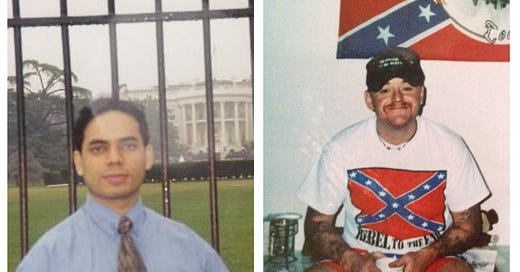




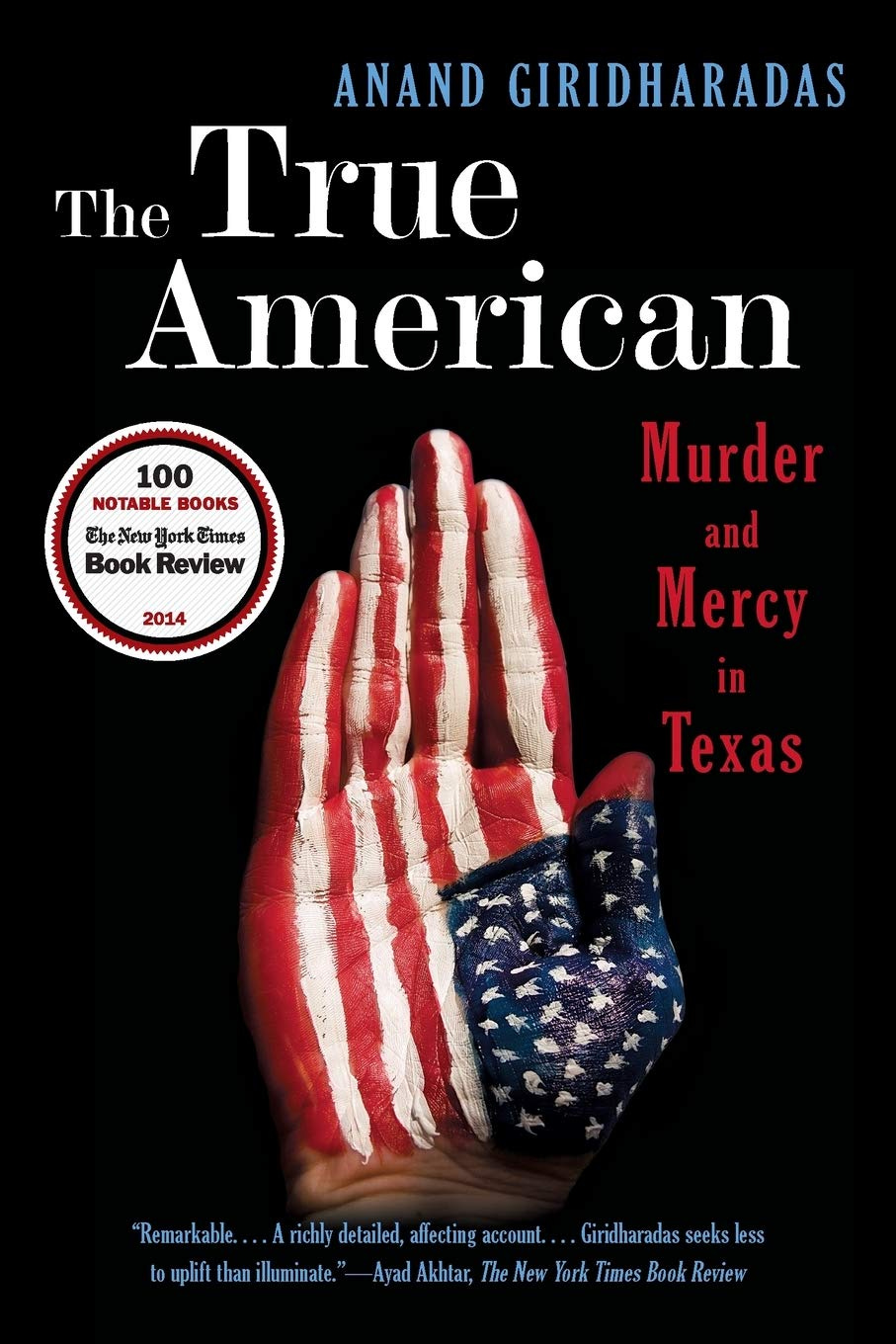



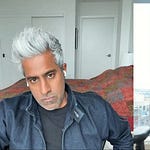
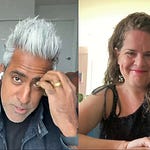

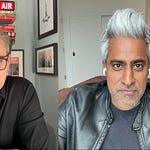
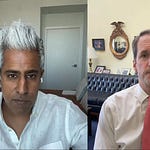
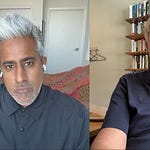
Share this post